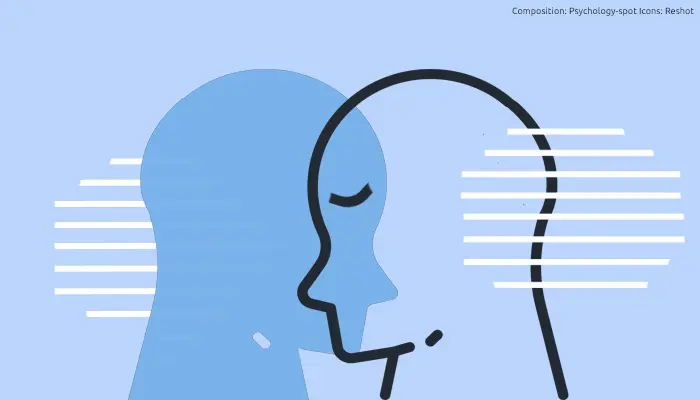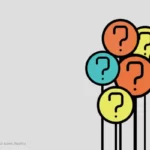
The lack of empathy is not seen, but it is felt. And its effects are often devastating, especially on an increasingly connected and interdependent planet where our decisions and actions can have unimaginable repercussions on the other side of the world.
Empathy is a kind of social glue that holds us together. It is a bridge to understanding that allows us to put ourselves in the place of the other. However, the psychologist Douglas LaBier is convinced that our society suffers from an increasingly widespread problem that we are overlooking: a profound empathy deficit. And its implications for our mental health, as well as its social impact, are devastating.
What is empathy deficit disorder?
The person who suffers from empathy deficit disorder is not able to get out of himself and tune in to the emotions and experiences of the others, especially those who think differently or do not share his value system. It is about a person trapped in the prison of his own mind, limited by his psychological barriers, which prevent him from connecting with different realities, which he generally disparage or ignore.
Obviously, anyone can develop an empathy deficit. It may be that person unable to put himself in the place of his partner who always puts his needs first. But it can also be that friend or coworker who gets angry when we don’t share his point of view. Or those narcissistic parents who constantly downplay their children’s problems.
Empathy deficit disorder is seen both in interpersonal relationships, between family, friends and colleagues, and in societies, when they acquire a selfish drift. In both cases, people remain locked in a private universe that isolates them emotionally from the others, making them indifferent to the pain, anguish and suffering of the others.
Empathy is banished in the territory of pity
We live in a society that experiences pity, but is not very empathetic. A society of fast emotions and short memory. The images of the pain of the others move us, but only what is necessary and for a short period of time, the minimum necessary to look good with our conscience and move on to something more pleasant.
That kind of society has prioritized pity over empathy. Pity is an automatic reaction. The pain and suffering of the others cause us discomfort. We see that someone is having a hard time and we feel uncomfortable or distressed.
However, pity is usually a passive feeling, often with patronizing overtones. Pity implies thinking that the anguished person does not “deserve” what has happened to him, but it also implies believing that he does not have the capacity to do something that allows him to get out of that situation.
Also, feeling sorry does not necessarily mean putting yourself in the place of the person who suffers. It is a simple expression of sorrow at the misfortune of the others. It is usually the lowest level of understanding and commitment to the bereaved.
Empathy, on the other hand, is a deeper connection that we experience when we are able to leave our perspective and enter the world of the other. Once there, we can experience his emotions, conflicts, or aspirations from that person’s point of view.
It implies seeing pain through his lens, without establishing dividing barriers that keep us on the sidelines assuming a position of superiority. That is why empathy is usually a proactive emotion that encourages us to help. That kind of connection builds healthy, reciprocal relationships based on genuine concern, not mere pity. The ability to make that kind of connection is precisely what people with empathy deficit disorder have lost.
How does empathy deficit disorder develop?
LaBier believes that empathy deficit disorder develops “When people focus too much on acquiring power, status, and money for themselves.” According to this psychotherapist, these are people who equate personal development with the acquisition, either of material goods or interpersonal relationships.
As a result, they become alienated from their emotions and identify with what they have. Thus they develop what could be described as a “transactional mind”, since they measure everything in terms of value to themselves, without stopping to think about the impact that these actions could have on the others. In practice, they view the world through a deeply egocentric lens.
This excessive focus on themselves creates a sense of vanity and self-importance. “These people develop the illusion that they are completely independent and self-sufficient. They lose contact with reality and forget that all human beings are interconnected and interdependent”.
In practice, they are not aware that they are part of a larger community. They do not know that, in this world, we sink separately or we are saved together, as Juan Rulfo said. Imbued with that self-centered utilitarianism, they lose the ability to connect on a deep level with others and feel empathy.
Obviously, the empathy deficit ends up becoming a source of interpersonal conflicts. Not only does it prevent the establishment of meaningful relationships, but at the social level it also becomes fertile ground for the seeds of hatred and polarization to germínate, since it is almost impossible for these people to empathize with those who have beliefs, traditions or ways of seeing life different.
The 2 keys to overcoming the empathy deficit
1. Be aware of interdependence
Although in certain circumstances we can be autonomous and independent, we are all connected in some way. The current pandemic, for example, has shown us that we are all more united than we think and that rich countries cannot save themselves at the expense of the poorest, no matter how hard they try. Our decisions and actions have profound repercussions.
It has also shown us that our small decisions can have a big impact on the people around us, from our family to the strangers we come across. Doing that little exercise in awareness will help us overcome the empathy deficit. A thoughtless or selfish act can literally cost someone else their life.
2. Put yourself in someone else’s shoes more often
LaBier proposes some simple exercises to develop empathy. We can start by analyzing our behavior that bothers our partner. It is obvious that it is not a problem for us, but it is for our partner. Therefore, we can put ourselves in his or her shoes to try to understand why it bothers him or her. The key is not to judge, but to focus on experiencing the emotions that our behavior generates in the other to immerse ourselves in his or her perceptions and sensations.
Another exercise involves awakening empathy for a person we don’t like or who has ideas that are radically opposite to ours. We can start by trying to understand how that person has come to be who we assume that he or she is. To do this, we must put ourselves in his or her shoes, think and feel like that person. Once again, the secret is not to judge, focusing on the points we have in common to try to see the situation through the eyes of the other.
Developing empathy provides us with a more assertive foundation to resolve conflicts, bridge differences, and abandon destructiveness. It makes us more aware of our vulnerability as human beings and allows us to open ourselves to the experiences of the others to enrich ourselves through them. That is the path to a healthier life and a more tolerant world, as LaBier pointed out.
Sources:
LaBier, D. (2010) Are You Suffering From Empathy Deficit Disorder? In: Psychology Today.
Jones, A. et. Al. (2010) Feeling, caring, knowing: different types of empathy deficit in boys with psychopathic tendencies and autism spectrum disorder. J Child Psychol Psychiatry; 51(11): 1188–1197.



